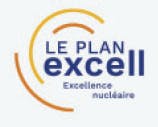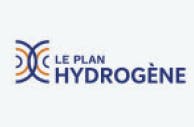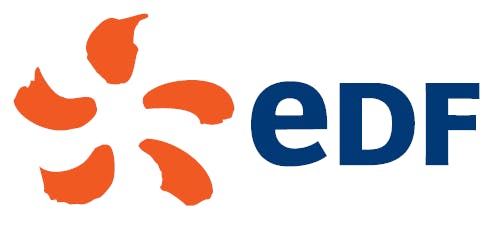1.3.2.4 Strategic priorities backed by five plans
The Group’s priorities are backed by the following five plans and a strategic work programme (1), in line with the Group’s raison d’être and business model:

Through the Solar Plan, which was launched in 2017, the EDF group aims to become the leader in photovoltaic solar energy in France with 30% of new capacity built (2) between 2020 and 2035.

Through the Storage Plan, which was launched in 2018, the EDF group plans to develop 10GW of new storage facilities worldwide by 2035, in order to increase the Group’s storage capacity to 15GW by that time. The EDF group is aiming to develop a portfolio of 1 million off-grid kits by 2030. Storage is a key factor in stabilising network frequency, encouraging the inclusion of renewable energy, and managing microgrids in non-interconnected areas. It will be developed by using hydro pumped energy transfer stations and batteries.

Through the Electric Mobility Plan, which was launched in October 2018, the EDF group aims, by 2023, to secure a leading position in the supply of electricity for electric vehicles in the Group’s four major European markets (France, the United Kingdom, Italy and Belgium). The EDF group plans to roll out 400,000 charging points and operate 20,000 smart charging points by 2023. At the end of 2022, over 280,000 charging points had been rolled out. For its own fleet of light commercial vehicles, EDF is also rolling out the EV100 programme (3) and gradually converting its ICE vehicles into electric vehicles; the target is to achieve a rate of 100% by 2030.

With the excell Plan, which was launched in the spring of 2020, EDF is laying the required groundwork for the French nuclear industry to return to the highest standards of diligence, quality, and excellence, which are necessary for the successful completion of nuclear projects. This is a key challenge: as a low-carbon source of energy, nuclear power has a significant role to play in the fight against climate change. In 2022, 27 of the 30 commitments of the excell Plan met or exceeded their targets, due to the engagement of EDF’s teams and of all the companies in the French nuclear sector (4). See also section 1.4.1.1.1 “The excell Plan”.

Through the Hydrogen Plan, which was launched in April 2022, EDF aims to secure a leading position in Europe in the generation of 100% low-carbon hydrogen, using low-carbon electricity from the grid, nuclear or renewable sources. EDF’s ambition is to develop 3GW of electrolytic hydrogen projects worldwide by 2030 (5) in order to contribute to the decarbonisation of industry and heavy transport (including the maritime and aviation sectors via e-fuels).
1.3.2.5 Group transformation
Digital technology and new work practices, responsibility and simplification, skills, the recognition model and health and safety are the five major levers of the Group’s transformation.
In order to be able to face the challenge of appeal and performance and meet the new expectations of customers, employees and all stakeholders, the Group has adapted its managerial practices by making teams more accountable, and by streamlining its organisations and its operating methods. It develops the use of digital technologies and collaborative tools.
For several years, the EDF group has placed the focus of digital transformation and innovation at the strategic level and has carried out an in-depth review of its internal organisation and training. Digital transformation involves employees and internal operating methods, as well as customer relations, the management and design of industrial assets, as well as the services provided.
This managerial and digital transformation approach is based on groups and mechanisms for coordinating networks of players involved in the transformation, a number that increases each year.
More specifically:
In 2018, the Group signed a new global agreement on Corporate Social Responsibility (“CSR agreement”), which includes improvements in favour of diversity and for the benefit of Group employees.
Amongst other initiatives, 2019 saw the creation of a Digital Academy devoted to training and supporting employees in transitioning to new digital jobs. In the same year, a new management-labour dialogue approach was adopted, simplified and set up, in accordance with new legal requirements.
In 2020, the usage centre accelerated the rollout of digital resources and practices. It is continuing its action to enhance collaboration across the Company and facilitate current remote working arrangements. In the same year, the Group reviewed its support system for internal mobility and declared new aspirations for leadership in support of managerial transformation.
In 2021, the Group used the experience of the health crisis to provide a new impetus to its transformation by adapting its operating methods, undertaking simplification actions and signing the collective agreement “Work differently, Manage differently” (“TAMA”) (6).
In 2022, by rolling out the “Work differently, Manage differently” agreement, the teams continued to rethink processes by seeking to make them more digital, by empowering themselves to act in order to implement simplification and improvement initiatives, and by continuing to build a framework for effective work for which employees are accountable.
The Group continues to digitise its processes, for example by the widespread rollout of the electronic signature and by automating certain tasks (RPA (7)). The Group engages with technological innovations through multi-business-line teams tasked with cross-functional subjects such as Artificial Intelligence, blockchain, the Internet of Things (IoT), edge computing, quantum computing and 5G.
(1) The strategic work programme is broken down into around twenty projects, steered at the level of the Executive Committee, giving concrete expression to each of the three strategic priorities.
(2) Market shares expressed in gross installed capacity.
(3) EV100 is a global initiative born in New York during Climate Week NYC in September 2017. It aims to bring together major groups committed to the development of electric mobility and its generalisation by 2030.
(4) See EDF’s press release of 11 November 2022 “The excell plan presents its annual results and its outlook for the sustainability of its standards”.
(5) See the press release of 13 April 2022 “The EDF group is launching a new industrial plan focused on 100% low-carbon hydrogen”.
(6) See section 3.3.1.3.5 “Well-being, organisation of work and working hours”.
(7) Robotic process automation.
